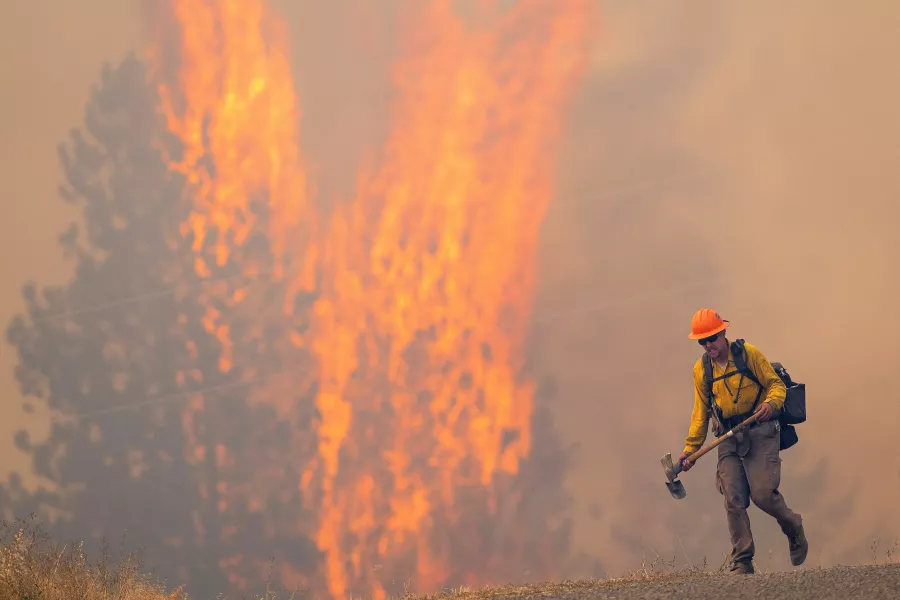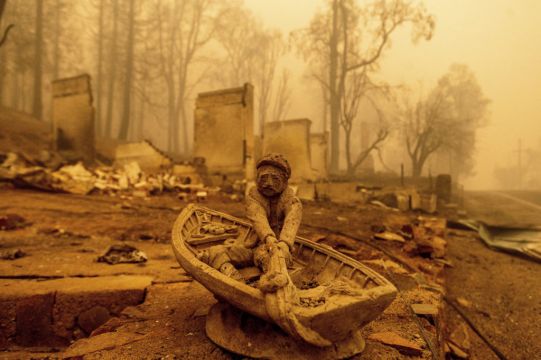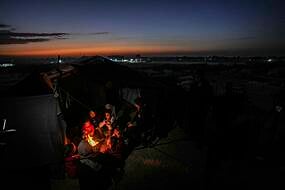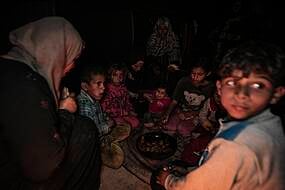The US Forest Service is operating in crisis mode, fully deploying firefighters and maxing out its support system as wildfires continue, threatening thousands of homes and entire towns.
The roughly 21,000 federal firefighters working on the ground is more than double the number of firefighters sent to contain forest fires at this time a year ago.
Anthony Scardina, a deputy forester for the agency’s Pacific Southwest region, said the agency is facing “critical resources limitations” as fires continue to break out across the west of the US.

An estimated 6,170 firefighters alone are battling the Dixie Fire in Northern California, the largest of 100 large fires burning in 14 states, with dozens more burning in western Canada.
The fire began a month ago and has destroyed more than 1,000 homes, businesses and other structures, much of it in the small town of Greenville in the northern Sierra Nevada.
Containment lines for the fire held overnight, but it was just 31% surrounded.
Gusty and erratic winds were threatening to spread the fire to Westwood, a lumber town of 1,700. Lightning could spark new blazes even as crews try to surround a number of other forest fires ignited by lightning last month.
“Mother nature just kind of keeps throwing us obstacles our way,” said Edwin Zuniga, a spokesman with the California Department of Forestry and Fire Protection, working together with the Forest Service to tackle the blaze.
Meanwhile, firefighters and residents were scrambling to save hundreds of homes as flames advance across the Northern Cheyenne Indian Reservation in southeastern Montana.

The blaze was still burning near the tribal headquarters town of Lame Deer, where a mandatory evacuation remained in place and a second fire was threatening from the opposite direction.
Smoke from the blazes grew so thick on Friday morning that the health clinic in Lame Deer was shut down after its air filters could not keep up with the pollution, Northern Cheyenne Tribe spokesperson Angel Becker said.
Smoke drove air pollution levels to unhealthy or very unhealthy levels in portions of Montana, Idaho, Oregon, Washington and Northern California, according to Environmental Protection Agency air quality monitoring.
Climate change has made the US West warmer and drier in the past 30 years and will continue to make the weather more extreme and wildfires more destructive, according to scientists.
More than 6,000 square miles have been burned in the US so far this year, well ahead of the amount burned by this point last year, but below the 10-year average, according to the National Interagency Fire Centre.







